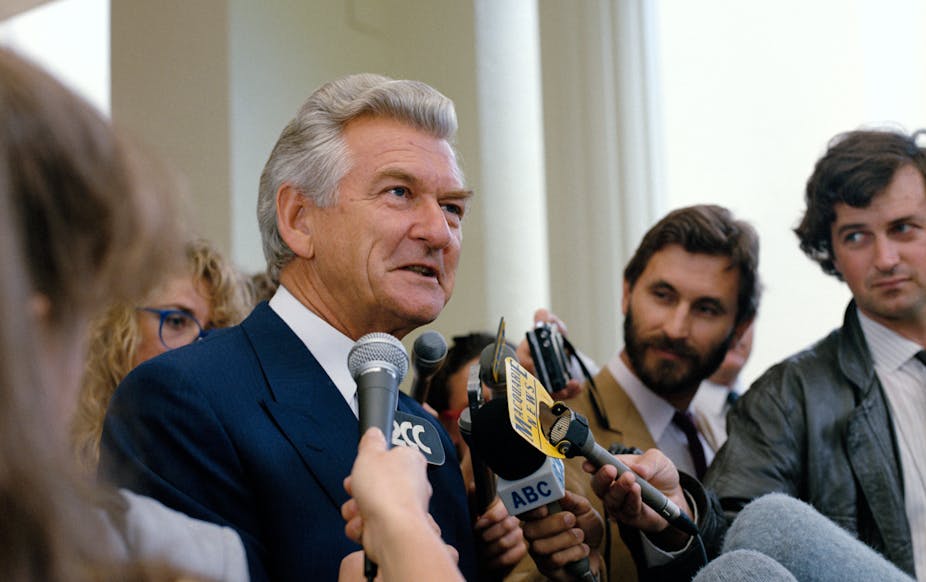Something is wrong with policy debate and deliberative processes in Australia. Everyone has a view on what is wrong with the public service, from Business Council of Australia chief Jennifer Westacott to former Secretary of the Prime Minister’s department Terry Moran to Gillard’s Chief of Staff Ben Hubbard.
One of the chief concerns is the role of ministerial staffers. This is a debate polarised into generalities and stereotypes.
On one side are those who believe the growth of ministerial staff has negatively affected the quality of advice to ministers and made them more inclined to focus on short-term populism and opinion polls; on the other those who see the growth of ministerial staff as necessary and inevitable and who, for the most part, are unconvinced the public service warrants unchallenged primacy in the provision of analysis and advice to the nation’s decision makers.
We must work out what has gone so wrong in our public discourse that key participants believe Australians are no longer capable of debating, let alone responding to the significant challenges facing our nation’s economy, institutions and social fabric.
Hawke’s reformers
Unfavourable comparisons often are drawn between the reformers of the 1980s and 1990s whose belief in wide-ranging reform underpins our current economic prosperity. Apparently forgotten is how difficult it was to design and implement these productivity enhancing reforms such as the floating of the Australian dollar; winding back decades of industry protection to open the economy to competition; and exposing state-owned enterprises to market forces to encourage greater innovation and competitiveness.
Certainly a different approach was taken to policy making in the 1980’s. In a recent presentation at Griffth University, Bob Hawke’s first Chief of Staff, Graham Evans, highlighted a number of these differences.
Hawke’s cabinet comprised individuals from diverse backgrounds who after the disappointments of Whitlam, were determined to demonstrate Labor had the discipline necessary to govern competently and effectively. As prime minister, Hawke recognised the need to build strong relationships with the public service. He led by example, appointing experienced, senior public servants to serve as his chiefs of staff.
But Hawke also believed in the need to inject new ideas and policy thinking into his office and those of his ministers. Thus, the ministerial staffing system was formalised through the Members of Parliament (Staff) Act 1984.
He allowed ministers latitude, expecting them to take the lead in their own portfolios, becoming involved only when asked or when an issue demanded the prime minister’s involvement. He encouraged ministerial staff and officials to work together, and understood the value of good process and constant communication both within government and outside.
Finally, he recognised the need to set a clear and limited number of priorities towards which the attention and effort of government should be directed.
Backward vision
But times were different, and indeed Julia Gillard warned earlier this year of the dangers of looking into a “rose-coloured rear vision mirror”. Most analysts agree the “game” of politics and governance changed in the late 1990s with the advent of the 24-hour news cycle, the professionalisation of politics and the “permanent campaign”.
These international trends have seen the techniques of campaigning – political research, opinion polling and tight media management, become entrenched in the business of governing. Competition for policy influence among increasingly sophisticated and professional analysts outside the public service (many of whom spent their formative years in departments), has expanded the range of advice on which ministers can draw in determining policy - a generally positive development, but one that clearly has challenged officials to maintain their departments’ place at the table in policy debates.
Through the prism of the media, the Australian public has become less tolerant of deliberation, on even the most complex of policy dilemmas.
Governments that commission reviews or consultative processes are accused of indecision and lacking ideas – as Kevin Rudd found from early in his tenure. Issues demanding government attention have proliferated; government agendas have become overcrowded.
At commonwealth and state levels, cabinet agendas are groaning under the weight of expectations. Meanwhile at COAG, the forum with the greatest potential to achieve efficiencies through intergovernmental cooperation on reform to service delivery systems, leaders struggle to make real progress
Cross-spectrum change
Can these challenges to achieving policy reform in Australia - a challenge shared with most liberal democracies - be addressed?
Certainly we will get better decisions out of governments if the roles of ministerial staff and the public service are more clearly defined. We must ensure they bring complementary capacities to their shared task of supporting ministers.
There must be greater transparency in policy and decision-making processes, and a better balance between the management of day to day issues and the rigourous development of longer-term policy options. This is clearly the role of our leaders across the political spectrum.
Inevitably this framework will be different from earlier decades. But what has not changed since the 1980’s and 1990’s is the need for clear directions, better priority-setting, and a “compelling narrative” that engages stakeholders in business and elsewhere in policy reform.

